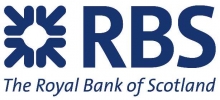How severely is increasing complexity affecting businesses? The Economist Intelligence Unit conducted a global survey of 300 senior executives to ascertain the level of this challenge, as well as the causes and impact of it. This report also looks at what firms are doing to tackle the complexity.
The main findings from the research are as follows.
Doing business has become more complex since the global financial crisis. An overwhelming majority of survey respondents (86%) think that business has become more complex in the past three years. While 28% say doing business has become “substantially” more complex in this period, 58% say complexity has “somewhat” increased. Among sectors, complexity seems to be of greatest concern in technology and telecommunications, with 41% of respondents from this sector flagging it as a clear and present challenge.
Firms are finding it increasingly hard to cope with the rise in complexity. Just over a quarter of respondents (26%) describe their firm as “complex and chaotic” but just one in five say they would have described their firms this way three years ago. Again, the technology sector appears particularly hard-hit, with 41% of respondents from the sector describing their firms as “complex and chaotic”. Given these figures, it is unsurprising that tackling complexity is a priority on senior management’s agenda at nearly one-half of the firms in the survey. It is worrisome, however, that it appears not to be a big priority yet for a vast number of businesses.
The single biggest cause of business complexity is greater expectation on the part of the customer. Whether as an individual or an organisation, the buyer now expects integrated packages of products and services, as well as customised offerings. The second most cited cause of complexity is increased regulation, followed in joint third place by rapid organic growth and operating in multiple jurisdictions. Complexity arising from the advance of globalisation is only eighth on the list of causes.
Complexity is exposing firms to new and more dangerous risks. Complexity has significantly increased the risk exposure of nearly one in five (18%) firms in the survey, and at nearly a quarter (23%) of financial services firms. The majority of firms say complexity affects their ability to change business processes and it hinders the introduction of new products and services. Complexity is also rendering decision-making more difficult at more than a quarter (27%) of the firms represented in the survey. Companies with a three-year decline in earnings before interest, taxes, depreciation, and amortisation (EBITDA) are more likely to be struggling with decision-making than those companies that have not suffered such a decline.
Businesses are focusing on technological solutions to tackle complexity. Simplifying information and communications technology (ICT) systems is the most popular initiative to tackle complexity in business, along with efforts to simplify or consolidate the range of products and services. As a source of complexity, though, technology comes in only at seventh place in the survey.
A majority of firms have an organisational structure that may be adding to complexity. Nearly three in five survey respondents say that their firm’s organisational structure is contributing to an increase in complexity. Almost one-half (47%) say it is difficult to work out who is responsible for what at their company and 39% say there is considerable duplication of effort.







